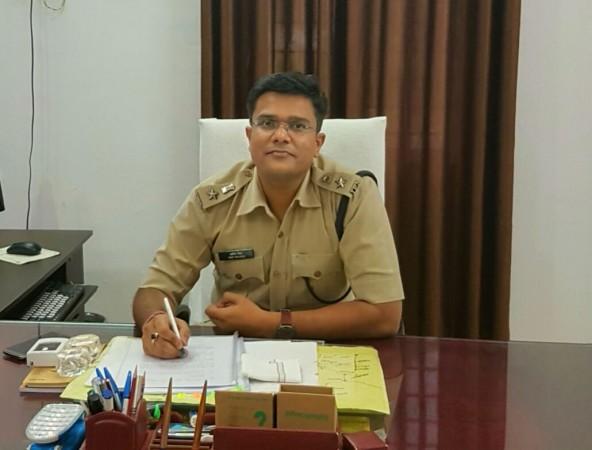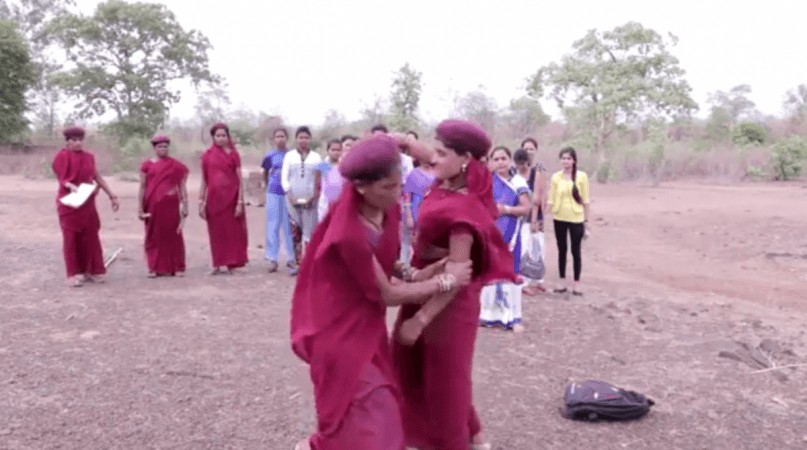
Community policing efforts have helped people across the world. In India, Karnataka's Bangalore police is trying to incentivise community policing by linking appraisals of constables to their efficiency as beat constables. In Balod, they just did it better by covering issues like cyber safety, reducing road accident deaths, rescuing trafficked girls and more.
What is community policing?
Community policing can be defined as "the system of allocating police officers to particular areas so that they become familiar with the local inhabitants". According to Office of Community Oriented Policing Services (COPS Office), US Justice Department, "when police and communities collaborate, they more effectively address underlying issues, change negative behavioural patterns, and allocate resources."
The beat constables become the nodal point of contact between police stations and the people. This enhances real time reporting and reduces the response time.
Rarity in India
Community policing is rarely practised in India, one district of Chhatisgarh the police has managed to use community policing to reduce road accidents, cyber crime and sexual violence against women.
In Balod district, then Superintendent of Police (SP) Arif Sheikh IPS launched three campaigns under the umbrella mission called Navodaya. The Navodaya campaign won Arif the "oscar" of community policing. His was the first Indian police team to win CISCO International Association of Chief of Police's international award for community policing.
The award was presented to him in San Diego, US, in October 2016. Nominations were received from over 200 countries, but India won.
Who is this officer?
At present Arif is posted as the SP of Bastar. Hailing from Pune, Maharashtra he worked as an engineer in HCL before qualifying the civil services (IPS) exam. Initially assigned the Manipur-Tripura cadre, he later sought a transfer as his wife is an IAS officer in Chhatisgarh. Arif Sheikh has worked in six districts of Chhatisgarh so far, including Balod, Gariaband, Baloda Bazar and now Bastar.
The initiatives
With his three-pronged initiatives -- Mission E-Raksha, Mission Jeev-Daya and Mission Poorna-Shakti -- he tried to spread awareness among people and empower them so that they don't fall prey to cyber crimes, help road accident victims and create safe public spaces for women.
"We can sensitise people and get real-time information, through WhatsApp groups, in which the locals are added. The method has helped dispelling fear among the people for police," said Arif.
E-Raksha - Cyber frauds detected
In Mission E-Raksha, classes were held in 80 academic institutions, including ITIs, Universities and schools to educate the youth about cyber crimes after phishing and other cyber crimes led to syphoning of lakhs of rupees from Chhatisgarh residents.
Students who scored above 50 percent in an exam held after the conclusion of the classes, were made E-Rakshaks. Around 400-500 students were initially inducted in the program, which they helped grow. Eventually, they spread awareness among seven lakh denizens about cyber crimes like phishing, WhatsApp and Facebook related crimes.
"Earlier, we would know about the crime long after it had taken place. After WhatsApp groups were created we were receiving information as and when calls were made to the people here," Sheikh told the International Business Times, India edition.
"The police team was able to bust gangs in Haryana and Delhi. At least eight people were arrested. The most they have syphoned off from an individual was INR 27 lakh," Sheikh told IBTimes India.
How Mission Jeevdaya - accident related deaths reduced by 22 percent
The second community policing initiative -- Mission Jeevdaya -- is a project similar to that of the Union Road Transport Ministry's i.e. reducing road accidents.
The police in Balod identified 40 accident-prone areas and put up sign-boards with warnings. They also equipped locals around the area, such as shopkeepers and vendors with first aid boxes. They were also given training to help accident victims within minutes of it taking place as the first 30-40 minutes is called the "golden period". As a result, accident related deaths reduced by 22 percent, from 138 to 108 in 2016, according to Sheikh.

Mission Poorna Shakti: 32 Tribal girls rescued
The third initiative, Mission Poorna Shakti, is the one that has had a major impact on women's safety. At least 32 tribal girls who were trafficked into sex slavery from parts of Chhatisgarh were rescued from Allahabad.
Local women who were empowered through the efforts of the police had alerted the police about the girls who were trafficked. Balod police had trained & formed self-help groups of women. Their mandate was to patrol the streets to proetct other women who were on the receiving end of sexual violence.
"The women "commandos" were equipped with a cane, torch, cap and whistle. These items are part of the uniform i.e. a red saree. They were also given training so they are "ready to react". Instead of training them in karate and other martial arts, which are problematic for the women who wear sarees, they were taught to use every day items like hairpins, bags, phones, etc for self defence. At least 12,000 mahila commandos were trained during the mission," said Sheikh.
While Arif has been since transferred to Bastar, the initiatives are still in place and the relationship between the community and the police has improved. His message to the community is that they should trust in the police.
SP Bastar Arif Sheikh spoke to IBTimes, India exclusively and here's his message. See the video below:

















